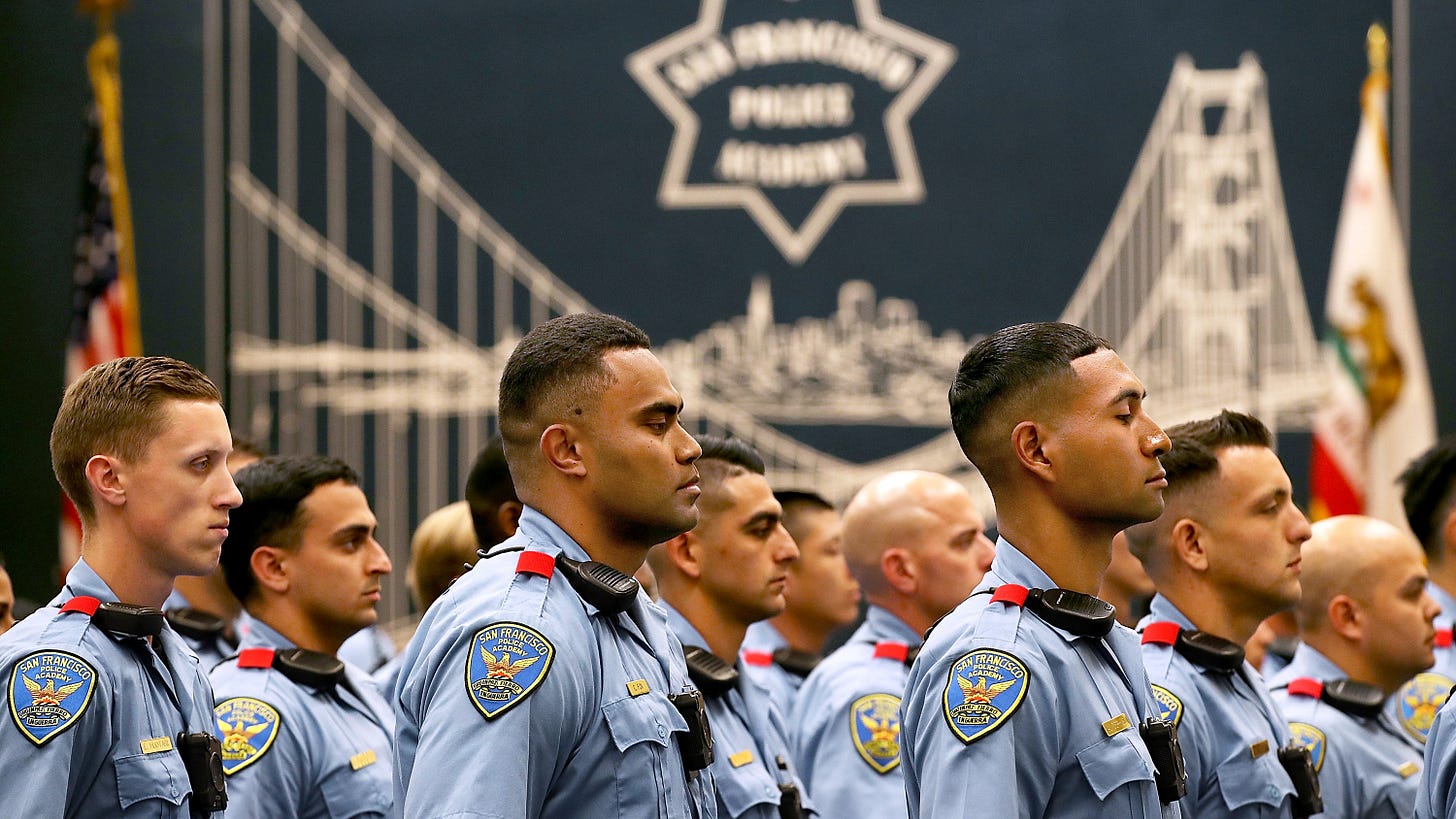Police Reform: Get it Right, Not Fast
Qualified immunity, union-protection and politically motivated hiring policies have insidiously reduced the overall quality of policing. Don’t fall for quick fixes.
On December 23, 2021, Los Angeles Police Department officers were pursuing a violent man through a department store. The man was in possession of a bike lock and cable, swinging it around and striking several shoppers.
The officers were alerted via 911 of an “active shooter” and approached the situation using an active shooter protocol. The problem here is that there was no gun in possession of the perpetrator and no shots being fired at the officers.
The officers were never in any grave danger. The only person in grave danger was 14-year-old Valentina Orellana-Peralta. She was in a dressing room trying on clothes when a stray police bullet penetrated a wall and struck the young girl, who died at the scene in her mother’s arms.
The LAPD released a statement claiming that officers did not know the girl was in the dressing room. I’m inclined to believe that statement, however the larger question is how can the LAPD justify using deadly force on someone holding a bike lock and cable? And did they not even consider that firing weapons in a department store during the holiday shopping season could possibly pose a danger to innocent people?
Those who regularly defend the police view these situations from the perspective of the officer. “Of course that robber fleeing the cops was holding a cell phone rather than a pistol, but how was the officer supposed to know that?” “Yes, the police broke down the door to the wrong apartment, but hey – mistakes happen.” “A bike lock can be deadly too, ya know.”
One of the principles of living in a rules-based society is that we have rights as citizens that are supposed to protect us from an abusive government. The police are the symbol and face of that government. The police have the authority to detain, punish or even kill you.
I cannot, therefore, get too worked up about the difficult challenges of the police when there has been little done to mitigate or even reduce the instances of people getting shot, dying in custody or mistakenly beaten or arrested by the very people we are counting on to protect us.
The shooting of Valentina follows two other similar incidents involving the police shooting of a bystander. In 2018, a man with a bread knife took a woman hostage at a Van Nuys church and police shot both the man and hostage to death. A few weeks later, officers chasing an attempted murder suspect into a Silver Lake Trader Joe’s exchanged gunfire with the man, striking and killing store employee Mely Corado. The officers in this particular incident would ultimately be cleared of all criminal charges.
To aspire to perfection in a line of work where mistakes kill people is not unreasonable; air-traffic controllers do this all the time. Making mistakes is a human trait, however making mistakes with loaded weapons and under the color of authority is something we should not tolerate.
As Charlton Heston said in Touch of Evil, “Only in a police state is the job of a policeman easy.” I am not as concerned over the frustrations and hardships experienced by law enforcement as I am over the rights of citizens to live their lives without the fear of misbehavior by the police.
One reason why police continue to make mistakes and misbehave in ways that would put anyone else in jail is "qualified immunity,” originally intended to protect public officials from civil liability while performing their elected and discretionary duties. This broad protection is intended for “all but the plainly incompetent or those who knowingly violate the law.” As the courts have expanded these protections over the years, many of those with qualified immunity behave as though they will not be held accountable for anything short of pre-meditated murder.
Another reason for these continued incidents is that powerful police unions routinely defend officers that are unfit for the job. The notorious Minneapolis police officer Derek Chauvin, who famously held his knee on George Floyd’s neck, had 18 prior complaints filed against him yet he only received two written citations and was never suspended or re-assigned. Chauvin clearly was unfit to carry a badge and a gun, but union-enforced contracts and legal maneuvers kept him on the streets. Many other examples exist, but the point is that police unions need to hold officers to higher standards of conduct and have a more serious mechanism in place to cut loose the bad cops.
Lastly, officers should be hired based on their capabilities and training, not because some racial or gender policy has not been met. Unqualified officers are a danger to society regardless of what they look like. Enough with the social engineering; too many mistakes have been made that have resulted in people dying or being severely injured.
Getting police reform right is better than getting it fast. We must ignore radical knee-jerk ideas such as defunding law enforcement and turn our focus to reforming the defective organizational policies and practices that are creating an atmosphere of permissible error and deadly mistakes.
There is no question that rank-and-file officers must be held accountable for their actions. But how are we to do this until we have reformed the systems and culture in which they operate?

